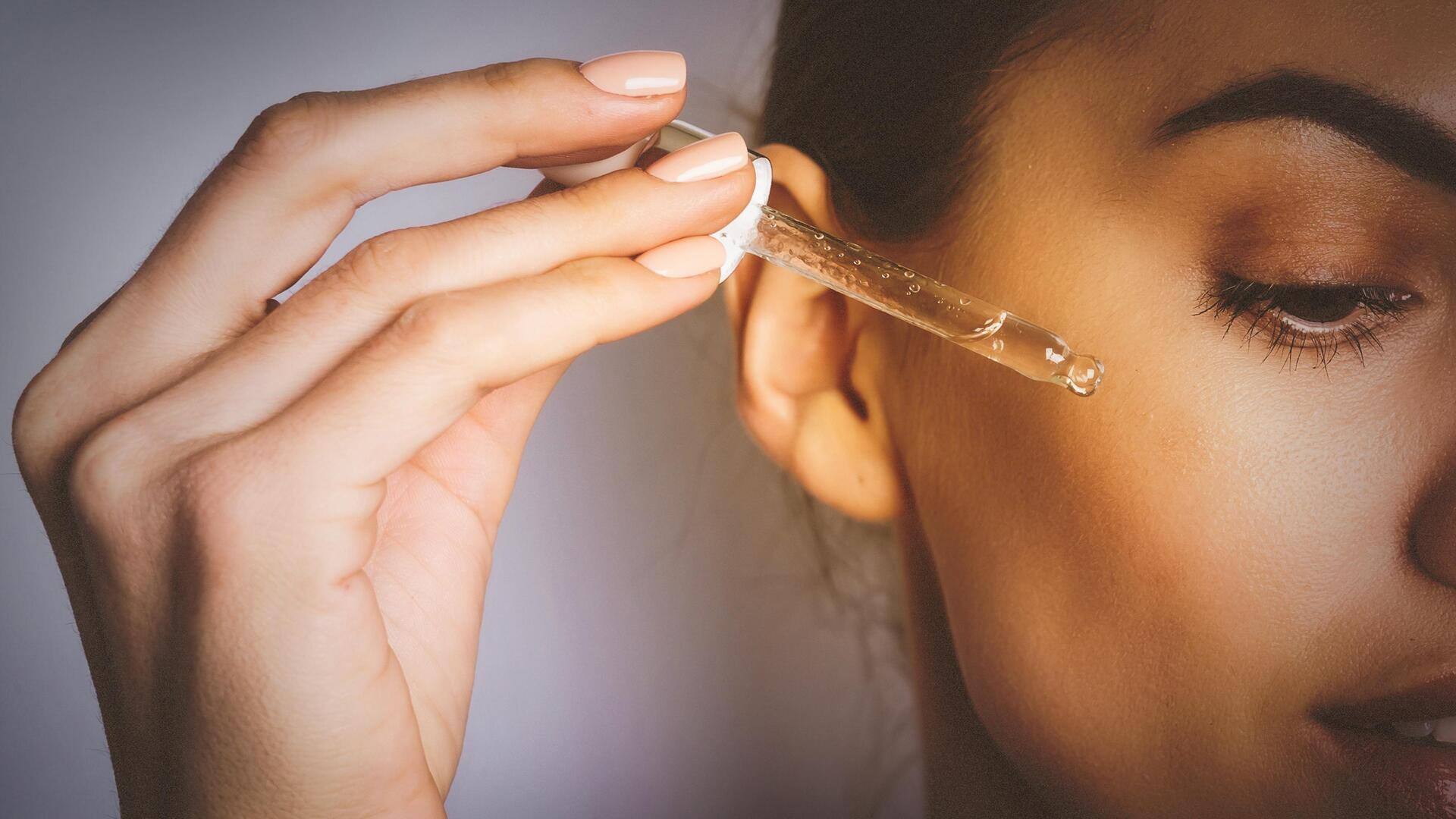
What are face serums and how do they benefit skin?
What's the story
Incorporating face serums into your skincare routine is essential for healthy, flawless skin.
Similar to other skincare products, serums also offer their own unique benefits for the skin.
Serums are different from moisturizers and are often loaded with ingredients that fight aging, acne, and other skin issues.
Here's everything to know about face serums and their benefits.
Description
What are face serums?
Face serums are light and are easily and quickly absorbed by the skin.
Serums are special additions to your skincare routine that offer concentrated amounts of one or two ingredients for better results for specific skin issues.
For example, a vitamin E serum will tackle inflammation, vitamin C and vitamin A (retinol) serums will target aging, and hyaluronic acid is great for hydration.
Benefits
Serums are concentrated for quicker results
Due to a heavy concentration of ingredients as compared to regular face creams, serums start working on your problem area quicker.
Serums are great for tackling fatigued skin overnight. However, they take time to show results when it comes to acne, wrinkles, and fine lines.
They are good for hydration and can make the look skin supple and plump in just a few uses.
Skin Type
How they help different skin types and issues
Serums are often sans a lot of additives, ensuring they seep deep into the skin.
Good anti-aging serums can lead to visibly smoother skin and a reduction in fine lines.
They are great for people with oily skin as serums will not leave a greasy layer on your skin.
People with sensitive skin can also use serums as they can soothe irritated skin.
Application
How and when to apply serum?
After using your facial cleanser and applying toner, it is time to apply a serum.
Wait for the toner to dry up, and then go in with the serum.
As for quantity, use what is mentioned on the bottle. Warm it up between your hands and pat it on the face.
Let it stay for five minutes before going in with your moisturizer.
Usage
Do you need a serum?
If you are targeting aging, start using an anti-aging serum with vitamin C or vitamin A, which is retinol. However, pregnant women should avoid retinol.
If you have oily skin, choose a vitamin C, tea tree, or even a hyaluronic acid serum for hydration.
For dry skin, both vitamins E and C are good.
Vitamin E also helps with pigmentation and inflammation.